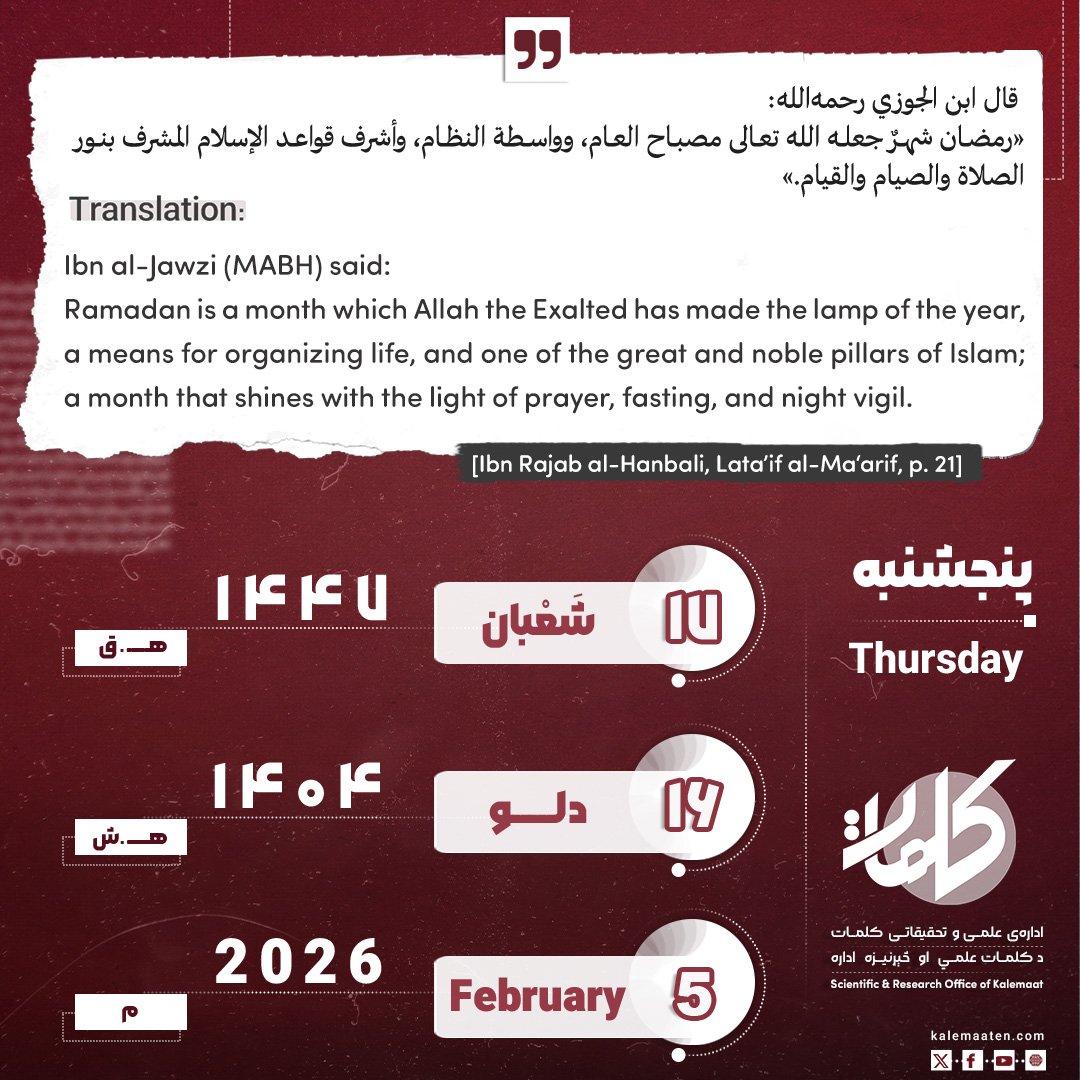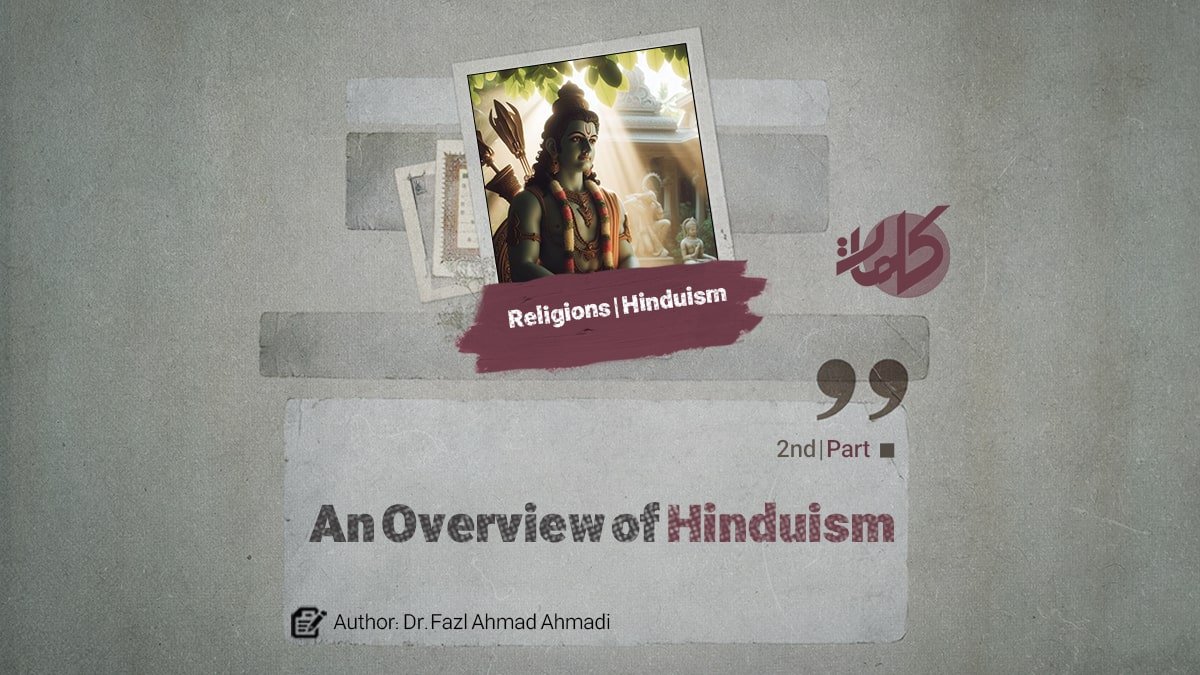Author: Dr. Fazl Ahmad Ahmadi
An Overview of Hinduism (Part 7)
Conclusion
At the end of this article, several basic points can be highlighted: First, Hinduism is not considered a religion in the same way that Judaism, Christianity, or Islam are recognized as religions. It is not established by any single person or group as a unified belief system or set of practices. This tradition lacks a fixed religious doctrine and does not have a single religious authority.
Second, Hinduism is primarily the religion of the people of India. It lacks a fundamental teaching that constitutes its essence, and it does not have any holy prophet or central holy book. Depending on various perspectives, Hindus can be viewed as monotheists or polytheists, believers in a personal or impersonal God, or as having a belief system characterized by synergy or analogy. Due to the considerable tolerance inherent in this tradition, a person can be considered a “Hindu” simply by virtue of not having officially converted to another religion.
Thirdly, there are different stages and classes of traditions in Hinduism, among which: Shruti is a divine revelation that was discovered by the great mystics of the past and was passed down to future generations through tariqa, syre and suluk; Smriti: This category of holy books is according to the Sandit of the first group or Shruti; “Dharma” is a Sanskrit word meaning justice, duty, truth and education, and in fact, it means right action and includes all these meanings; “Caste” is a Portuguese word meaning race. Caste refers to a hereditary and intramarital Hindu social group, composed of persons with the same social status and economic status, which is distinct from other social groups and has the least social mobility, and “Ashrama”, which means the stage of life and its meaning , the ideal life has four stages in Hinduism.
Finally, Hinduism has its own complexities that cannot be easily accessed to all its principles, beliefs and traditions. In other words, each group and class in Hinduism has its own beliefs and traditions, which may have significant differences from region to region. However, Hinduism is one religion that has many followers in its many sub-branches.
Sources and References
1. Asadi, Mohammad Reza, (2017). “Ethical ranks of Hinduism; Challenges and the right model from the perspective of Islam”, Marafet magazine, year 27, number 6, number 249, September 2017, pages 59 to 68.
2. Balkhari Qahi, Hassan, (2015). “The theory of manifestation; In describing the iconoclasm of Islamic art and iconoclasm of Christianity and Hinduism”, Fine Arts Magazine, Visual Arts, Volume 21, Number 1, Spring 2015, Pages 1-8.
3. Tavakoli, Tahereh, (2014). “Rame Krishna School: Pioneer of Religious Renewal in Hinduism”, Sistan and Baluchistan University Subcontinental Studies Quarterly, 7th Year, Number 22, Spring 2013, Pages 7-24.
4. Hosseini, Sidakbar, (2016). “Analysis and review of sources of authenticity in Hinduism”, Marafet Adyan magazine, 8th year, 3rd issue, serial 31, summer 2016, pages 81 to 98.
5. Al-Hamd, Abdul Qadir Shaiba, (1433). Modern Religions and Differences and Madhhabs, Fourth Edition, Al-Riyadh – Kingdom of Saudi Arabia; Al-Fahd Al-Watani School.
6. Khodayar Mohebi, Manouchehr, (no date). “Religions of India”, Vahid magazine, number six, year two, pages 33 to 39.
7. Rezaei, Elham, (2008). “The Basic Report of the Book of Hinduism”, The Public Book of Religion Magazine, No. 146, December 2018, pages 38 to 50.
8. Al-Samouk and Shammari, Simeon Mahmoud and Hoda Ali, (no date). Religions in the world, al-Muhtadidin al-Islami school for comparing religions. http://kotob.has.it.
9. Shaygan, Dariush, (no date), “Hindu Ritual”, Journal of the School of Literature, Year 11, Number 3 and 4, pages 345 to 384.
10. Seddiqi, Seyedah Samiya, (2017). “The creation of the world in Islam and Hinduism”, two specialized quarterly Kalam Hikmat, first year, first issue, spring and summer 2017, pages 84-93.
11. Nomani, Abdul Azir, (no date). Satiety in knowing religions; First part”, Call of Islam magazine, ninth year, number 34 and 35, pages 57 to 63. Islam, ninth year, number 34 and 35, pages 57 to 63.



